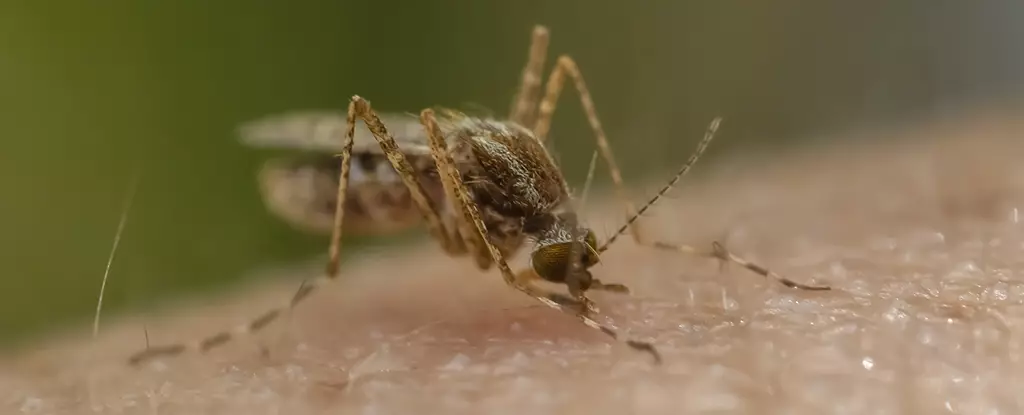Malaria remains one of the most significant public health challenges in the world, responsible for nearly 250 million infections and hundreds of thousands of deaths annually. Traditional methods of combating malaria have largely revolved around controlling mosquito populations and developing vaccines with limited efficacy. Recently, however, a pivotal study has introduced a groundbreaking approach: utilizing genetically modified mosquitoes to deliver a new malaria vaccine. This innovative method signals not only a potential shift in vaccine efficacy but also opens up new avenues for the future of malaria prevention.
Researchers from Leiden University and Radboud University in the Netherlands have collaborated to create a second-generation vaccine known as GA2. Unlike earlier vaccine versions, which had moderate success, this latest iteration demonstrates remarkable effectiveness, providing protection against malaria in eight out of nine young adult participants, compared to just one out of eight for the prior version. At the heart of this study is a genetically weakened strain of the Plasmodium falciparum parasite—the same pathogen responsible for malaria in humans. The modified strain is harmless, as it cannot mature in the human body, preventing the onset of disease while still priming the immune system.
Vaccinologist Meta Roestenberg explains that these weakened parasites are introduced through a mosquito bite, mirroring the natural route of malaria transmission. The gene that causes the parasite’s development has been disabled, preventing it from progressing through its lifecycle within the human host. Instead, the immune system recognizes this non-threatening version of the parasite and generates a robust immune response that primes the body for potential future infections. This method ingeniously combines the natural infection pathway of malaria with the safety of an attenuated organism.
One of the intriguing findings of the GA2 vaccine is its slower maturation process within the liver. While the previous vaccine formulation, GA1, allowed the parasite to mature within 24 hours, GA2 extends this duration to nearly a week. This delay seemingly advantages the immune response, providing the body with sufficient time to identify and target the parasite effectively. Consequently, the GA2 vaccine generates a wider array of immune cells, suggesting that the immune response is both stronger and more versatile.
Such findings are critical as public health officials seek to understand not only why this vaccine performs better but also how we can enhance its properties further. The immune dynamics triggered by a slower parasite development could reveal insights into crafting vaccines for other diseases as well.
Addressing Side Effects and Concerns
Interestingly, the study reported only minor side effects for participants, predominantly consisting of localized redness and itching at the site of the mosquito bites. Importantly, as a precautionary measure, all participants were prescribed anti-malarial drugs following the completion of the trial. This approach highlights the careful consideration researchers must exercise in proceeding with innovative treatment methods, ensuring both participant safety and the efficacy of the intervention.
While the potential of using genetically modified mosquitoes as a delivery method for vaccines is groundbreaking, it raises important questions about practicality. Although effective in a controlled study setting, rolling out such a vaccination method for widespread public use poses logistical and ethical challenges.
The Future of Malaria Prevention
As malaria continues to inflict heavy casualties worldwide, novel solutions such as the GA2 vaccine become increasingly vital. The combination of a highly effective vaccine and an innovative delivery method provides hope in the ongoing battle against malaria. However, the work is far from complete; current vaccines still protect only 50-77% of recipients for limited durations, underscoring the critical need for continued research and development.
The exploration of genetically modified organisms for vaccine delivery epitomizes a reimagined strategy in global health. The positive results from the GA2 study not only foster optimism for malaria control efforts but also signify a potential turning point for vaccine development against other infectious diseases. As scientists and public health officials continue to collaborate, we can look forward to a future where the promise of more effective and long-lasting malaria vaccines becomes a reality.

